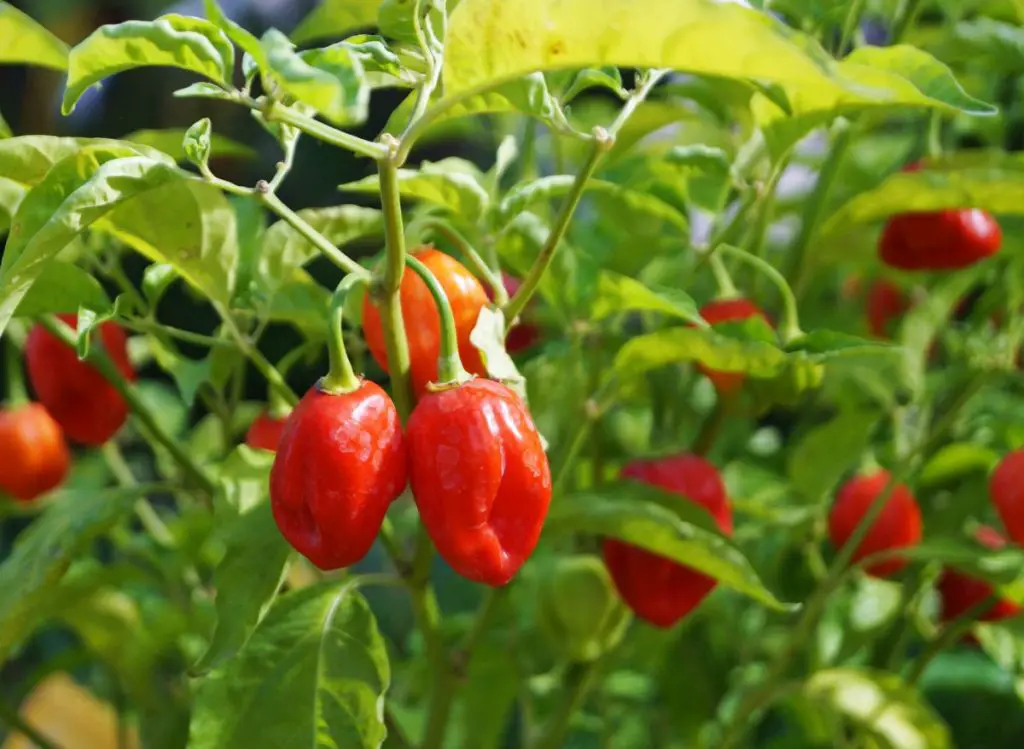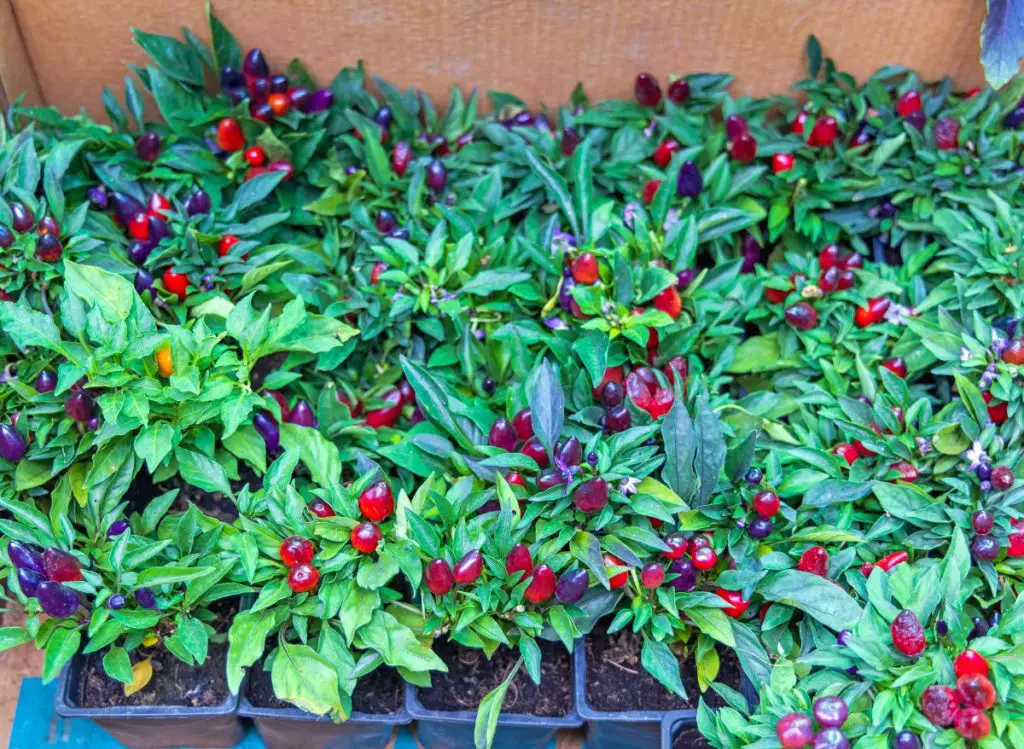
Pepper plants are a delicious addition to any garden, but as with any plant, they require proper care and maintenance. One of the most crucial aspects of caring for pepper plants is watering them appropriately. Underwatering or overwatering your peppers can lead to stunted growth or even death.
So, how much water do pepper plants need? In general, pepper plants require about 1 to 2 inches (2.5 to 5.1 cm) of water per week, depending on factors including temperature, weather, the size of their growing container, and the size of the plant. As a rule of thumb, water your pepper plants about once weekly and allow the water to drain thoroughly.
Read on to explore everything you need to know about watering your pepper plants to ensure they thrive. Check out this article if you wonder how much sun does Jalapeño Peppers need.
Frequency of Watering
Pepper plants prefer soil that is consistently moist but not too wet (Source: NC State University). You should water your pepper plants deeply once a week and more often during periods of drought or excessive heat.
Before watering your pepper plants, I suggest you check the soil’s moisture level by sticking your finger about an inch into the soil. If the top inch of soil feels dry, it’s time to water.
Amount of Water
When watering your pepper plants, the goal is to soak the soil to a depth of about six inches. As a general rule of thumb, pepper plants need about one inch to two inches of water per week, either from rainfall or manual watering. You can use a soaker hose or watering can to apply water to the soil directly at the base of the plant.
Remember that the soil type and container size also affect how much water your pepper plants need.
- Well-draining soil, such as sand, high organic matter, clay, or loam, is ideal for pepper plants, and when watered, the soil should allow proper drainage.
- On the other hand, container size does affect the amount of water. Small containers require more water than larger ones. As such, ensure that the container isn’t too small for the plant, providing enough soil that retains moisture without becoming waterlogged.
Timing of Watering
The best time to water your pepper plants is in the morning, as this allows time for the leaves to dry before nightfall.
- Morning watering is ideal because it allows the leaves to dry out, minimizing any risk of disease from excess moisture.
- Watering at night when the temperature drops could lead to the retention of moisture, which then becomes a breeding ground for fungi and bacteria.
Wet foliage at night can encourage fungal growth and disease. Avoid watering in the evening or late afternoon, and never water your plants during the hottest part of the day, as the water can evaporate before it has a chance to soak deeply into the soil.
Water Quality
The quality of the water you use can also impact your pepper plants. Chlorinated water or water that is high in salt content can damage the plant’s roots or cause leaf burn.
Saltwater directly harms plants by accumulating chloride and sodium ions that can be toxic as they gather in plants. They can also create a chemical drought where water in roots can diffuse into the saltier soil, which can also be very damaging for plants (Source: Cornell University)
In other words, plant roots can take up the chloride ion and accumulate in the leaves. However, excessive accumulation may cause burning of the leaf tips or margins, bronzing, and premature yellowing of the leaves.
Most fruit trees are generally sensitive to chloride, whereas most vegetable, forage, and fiber crops are less sensitive, according to expert gardeners from the Government of Western Australia.
If possible, use rainwater or allow tap water to sit out overnight before watering your plants, allowing the chlorine to dissipate.
Signs of Over or Underwatering
Despite your best efforts, your pepper plants may still show signs of over or underwatering. An underwatered plant will have wilting leaves, while an overwatered plant will have yellowing or brown leaves. If you notice either of these signs, adjust your watering schedule accordingly.
If you happen to be out of town for several days, you might feel the need to overwater your pepper plants right before leaving.
Resist that urge, as overwatering could lead to root rot and eventually kill your plants. Instead, water your pepper plants the same way you would before leaving. If you are gone for more than a week, consider asking someone to water your plants for you.
How Long Should You Water Your Pepper Plants?
When it comes to watering duration, watering for too long could lead to waterlogging while watering too briefly might not be enough to supply adequate water to the roots. Generally, watering pepper plants for about 30 to 60 seconds is enough, allowing the roots to absorb the water without waterlogging the soil.
Always remember that pepper plants require moisture consistently but without overwatering. Generally, pepper plants require at least an inch of water per week, which can be supplied through rain or manual watering.
During the hot summer months, pepper plants lose more water through transpiration, and you may need to water twice a week depending on the soil and weather conditions. But before watering, it is recommended to check for moistness. I suggest you stick your finger into the soil to a depth of about two inches, and if the soil is dry, then it is time to water your plants.

What to read next:
- Can Peppers Grow Well In Indirect Sunlight? (Here’s what I found!)
- Best Tips For Growing and Caring for Pepper Seeds Indoors.
- How To Properly Speed Up Pepper Seed Germination: Here’s How!
Wrapping Up
Pepper plants need consistent watering to thrive, but it is important not to overdo it. Overwatering can lead to root rot and disease, while underwatering can cause stunted growth and wilting.
The key is to water your pepper plants deeply once a week, monitor the soil’s moisture level, and pay attention to any signs of stress.
Generally, when it comes to watering pepper plants, a little bit of knowledge and attention can go a long way in helping your plants to flourish.

